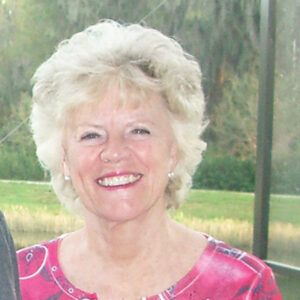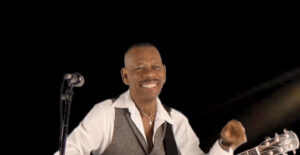As a nurse who loves history, I’ve always gravitated to the question: what were the women doing during periods of historical interest, particularly in times of crisis? One group that has garnered my attention is the experience of female military nurses who served in Vietnam.
There weren’t many of them, only 4,000 to 15,000, depending on who did the counting. Records of women in the military at that time were often fragmented since female volunteers were rare in a typically male endeavor.
I wondered what drew the young nurses to volunteer in the Vietnam War. I found that some came from military families and thought it was a chance to serve in wartime like their fathers, grandfathers, and uncles. Some of the women volunteered to avoid a stifling future or leave behind protective parents. For many, though, it was a chance for adventure or travel to exotic places. Some wanted to be tested, and others who were already in the military welcomed the opportunity to further their careers.
When the Vietnam War began, the feminist movement was just getting underway in America. Women were eager to try new things and take their place in a world of expanding opportunities. But the military was ill prepared for women in wartime and, as a result, the nurses were not as vigorously trained as the men. Many of the young women were fresh from schools of nursing with no idea of what lay ahead.
Endurance training and learning the culture were not part of their preparation. Both novice and experienced nurses were given just a few weeks of specialized training. During the Tet offensive in 1968, many new registered nurses arrived. The male soldiers landed in combat boots but nurses were often in dress uniforms: a two-piece suit, high heels, gloves, and a purse. Not exactly outfitted for war but very professional! Nurses began their Vietnam experience with a 24-hour endurance flight from the United States, often landing by helicopter amid gunfire. The war was frightening and immediate.
The more experienced military nurses who had operating room or ER experience transitioned more smoothly and with more confidence. Long workdays were the norm — six days a week, twelve hours per day of stressful pressure often extending into the night or for 24 hours during emergency situations. It was hot, grueling, and frightening work. As helicopters dropped off fresh recruits, they picked up those finishing their 12-month tours. The cycle seemed never-ending. Nurses and corpsmen learned to look for the faded green fatigues rather than the crisp new ones. Everyone depended on those around them for survival. But war was a great leveling ground.
In a PBS interview, one young nurse recalls arriving in Vietnam straight out of nursing school. She laughingly considered herself “pretty much incompetent.” Within a month she was the charge nurse over a 70-bed unit. “There wasn’t a lot of choice as far as how quickly you had to learn.”
Time took on a new meaning for the nurses. The availability of helicopters to evacuate and deliver wounded troops cut short the time nurses had for attending to the injured. Nursing techniques escalated to meet the need, and hospitals back in the States saw the emergence of the trauma care specialties and trauma/shock units that are still used today.
Off the battlefield, they saw many tropical diseases that they would never see again in their careers. Some nurses idealized the war, expecting to form relationships with the Vietnamese people in their off time. But this was a war with no clear distinction between friend and enemy, with no uniforms or battlefronts to withdraw behind. Often the barracks or hospitals were the center of raging firefights.
Though the mortality rate of soldiers injured in the field who made it to a hospital was less than 3%, the salvaged lives were often severely damaged. Many nurses wondered how their patients fared after leaving their care and returning home, but conditions dictated that they had to concentrate on the physical work, and there was plenty of that to offset the emotionally charged atmosphere.
Women in the military service in Vietnam faced new moral challenges. Treating enemy soldiers, sometimes prisoners of war, was part of the job. Some nurses had a hard time controlling the anger they felt, both toward the enemy and toward their own government over the enormous cost of young lives. Many of the nurses chose personal morality over military morality and, for some, it was a difficult burden to manage. For many, it followed them home to haunt them the rest of their lives.
The nurses who served early in the war felt a spirit of pride in the work they performed. But as the unpopular war dragged on with casualties rising, feelings at home changed and support for those serving in the military fell. Many of the nurses returning to the United States tried to avoid attention, refusing the celebrations of family and communities, anxious just to return to a normal life. One Army Nurse recalled leaving her uniform in the ladies room after the flight home because she didn’t want the negative attention of the protesters at the airport. She said she wasn’t the same woman who had left home a year before. It took her many years before she could talk to anyone about her Vietnam experience. Nurses were not immune to post-traumatic stress syndrome.

Despite the many challenges of wartime nursing, almost to a person, the nurses found their tour in Vietnam to be the most challenging and fulfilling of their lives.
In Dr. Elizabeth Norton’s Women At War, fifty military nurses were interviewed twenty years after returning home. When asked whether they would volunteer again, 90% responded affirmatively. They cited the challenges, comradery, and excitement as outweighing the darker aspects of the war for them.
One nurse said, “In a heartbeat I’d be ready!”
“I’m not sure I’ve ever enjoyed nursing as I did that year. It was the most exciting, challenging, stressful, and important nursing I’ve ever done,” another study participant said.
All admitted, however, that the professional equality did not continue when they returned home. The autonomy of the nurses in Vietnam was unique, and they came to appreciate how much they could do in the field and in hospitals without a doctor overseeing them. Many nurses spent the rest of their careers searching for clinical challenges equal to their experiences in Vietnam.
Women who served in Vietnam saved many lives, and by doing so, they forged an investment in America’s future. After returning home, some established rehab programs for wounded warriors or devoted their nursing careers to PTSD patients. Still others taught critical care skills based on what they had learned in their one year tour. They were innovators for change for the injured and their recovery.
The Vietnam nurses were the quiet heroes of an unpopular war. Although often overlooked, they recognized their moment in history as part of an extraordinary experience, and America is proud of the personal courage they exhibited.

























